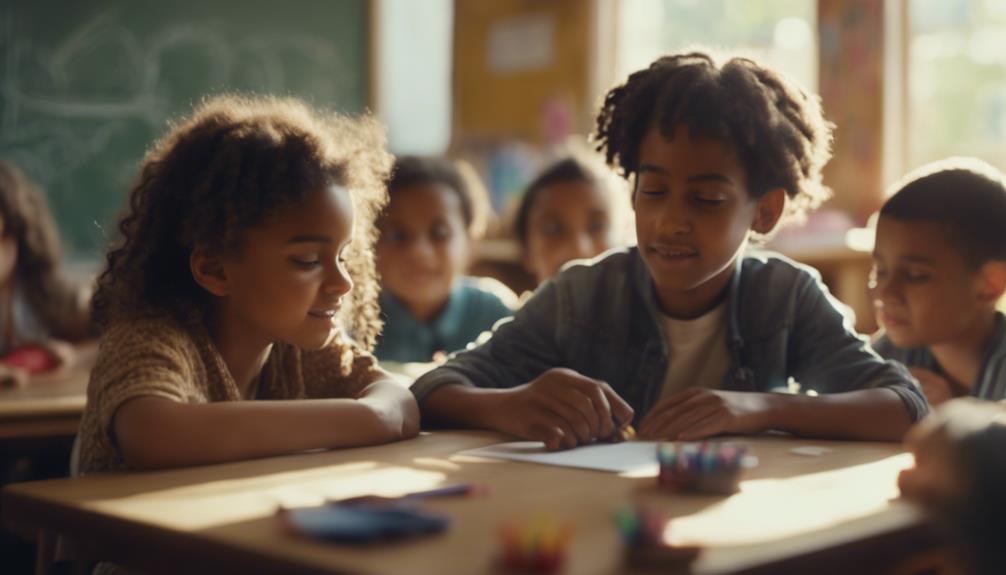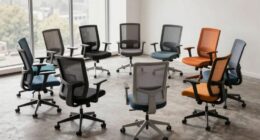Malcolm and Simone Collins are transforming education by creating innovative solutions that tackle the traditional system's failures. Their experiences motivated them to establish the Collins Institute, a personalized learning environment that emphasizes creativity and independence. Here, students enjoy flexible pacing and hands-on learning, which fosters critical thinking and real-world skills. With a focus on mentorship and adaptability, the institute prepares students for tomorrow's dynamic job market. Their approach nurtures children's passion while promoting ownership of their education. Those keen to uncover more about the couple's vision for revolutionary education are in for an enlightening journey ahead.
Key Takeaways
- Malcolm and Simone Collins founded the Collins Institute to address systemic failures in the U.S. education system by creating innovative learning alternatives.
- Their model emphasizes personalized learning, integrating academic research with experiential experiences to prepare students for entrepreneurial careers.
- The curriculum fosters student autonomy, allowing learners to control their educational journey and progress at their own pace.
- Essential skills, such as financial literacy and emotional intelligence, are prioritized to equip students for real-world challenges and dynamic job markets.
Problems in U.S. Education System

The U.S. education system often feels bizarrely authoritarian, imposing restrictive expectations that mirror the environment of a prison rather than fostering creativity and independence.
Rooted in Industrial Revolution practices, it prioritizes the production of interchangeable workers for corporate America, neglecting to prepare students for entrepreneurial careers. This outdated approach results in psychological harm, leaving many graduates unprepared and struggling with mental health issues.
As traditional jobs become obsolete due to automation and offshoring, the system's failure to nurture unique talents becomes increasingly apparent. Students must learn to reinvent their careers every few years, yet the current system stifles innovation and adaptability, ultimately jeopardizing their futures in an evolving job market.
Personal Journeys and Insights
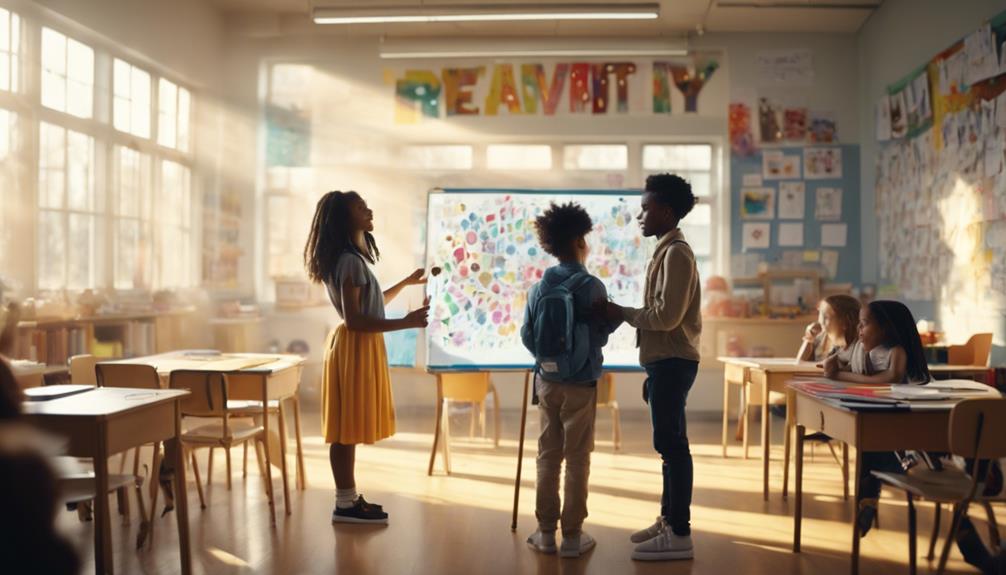
Malcolm and Simone Collins' personal journeys reveal the profound challenges faced by students in a traditional education system, spurring their commitment to reform.
Malcolm's traumatic wilderness program and Simone's academic success, shadowed by mental health issues, particularly for neurodiverse individuals, fueled their desire for change. They recognized the urgent need for a new educational model that addresses these systemic failures.
- Malcolm's experience highlighted the restrictive nature of traditional education.
- Simone's struggles underscored the necessity for inclusive environments for neurodiverse learners.
- Their shared vision aims to create accessible, innovative alternatives for motivated students.
These insights drive their mission to revolutionize education, ensuring future generations thrive in a more supportive framework.
The Collins Institute Model
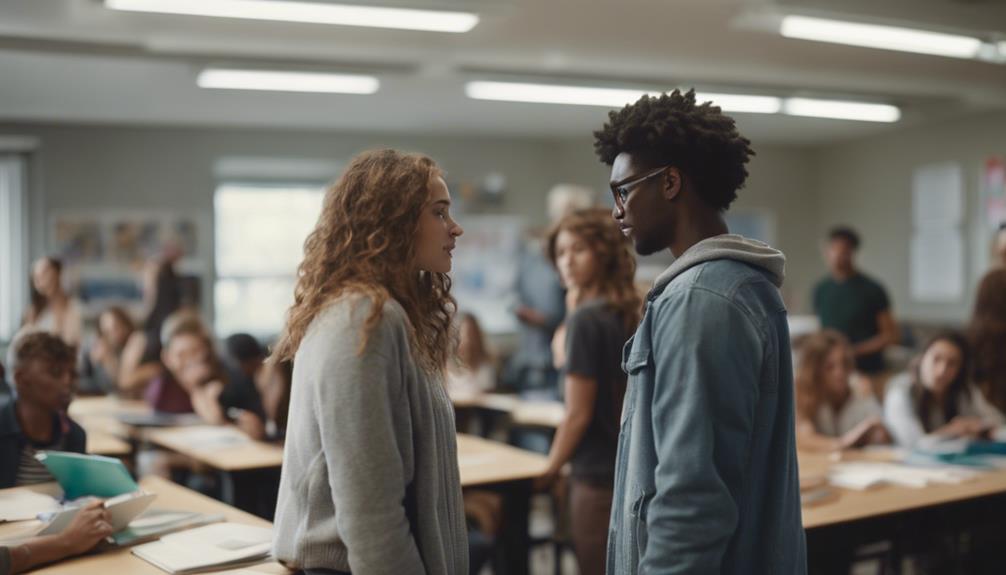
Collins Institute operates as an innovative lab school, continuously refining its approach to personalized learning tailored to each student's unique needs.
It prepares students for entrepreneurial and leadership roles by integrating academic research with experiential learning.
Collaborations with organizations like Santa Fe Institute and The University of Austin enrich the curriculum, providing practical insights and real-world applications.
The inaugural class, limited to eight students, guarantees individualized attention, with admission based on project execution and resource adaptability.
This model emphasizes continuous testing and refinement, allowing students to shape their educational journey.
Fostering Student Autonomy
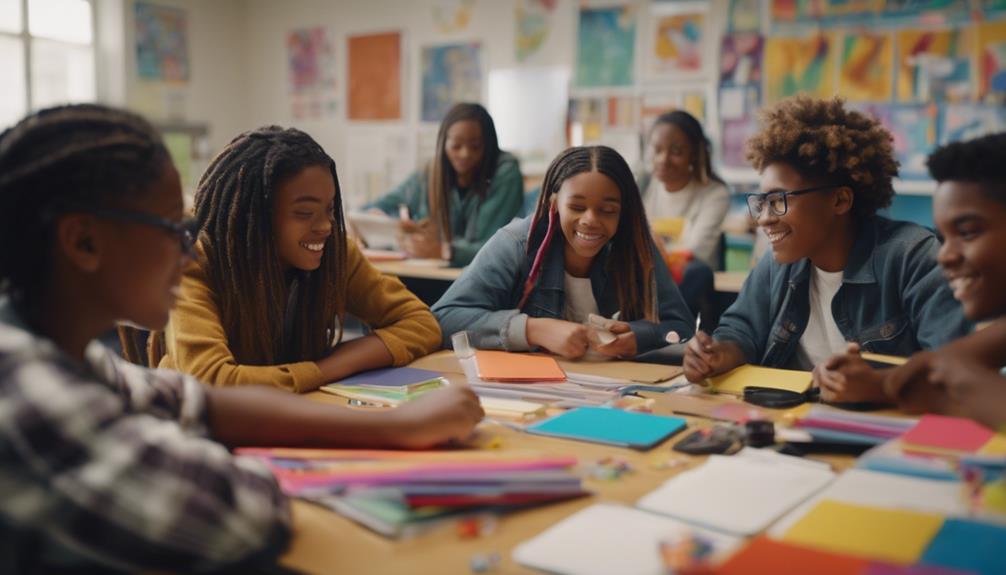
Fostering student autonomy is central to the Collins Institute's approach, empowering learners to take charge of their educational experiences and tailor their paths to success. By prioritizing individual choice, the institute enables students to engage deeply with their learning.
- Control Over Materials: Students choose their instructional materials, allowing them to explore topics that ignite their passion.
- Pacing Flexibility: Learners can progress at their own pace, ensuring they grasp concepts before moving forward.
- Testing-Credit System: A unique system rewards progress in weaker subjects, motivating students to improve.
This model nurtures independence, fostering a sense of responsibility and ownership over education, and ultimately prepares students for a dynamic future where adaptability is key.
Essential Skills Development
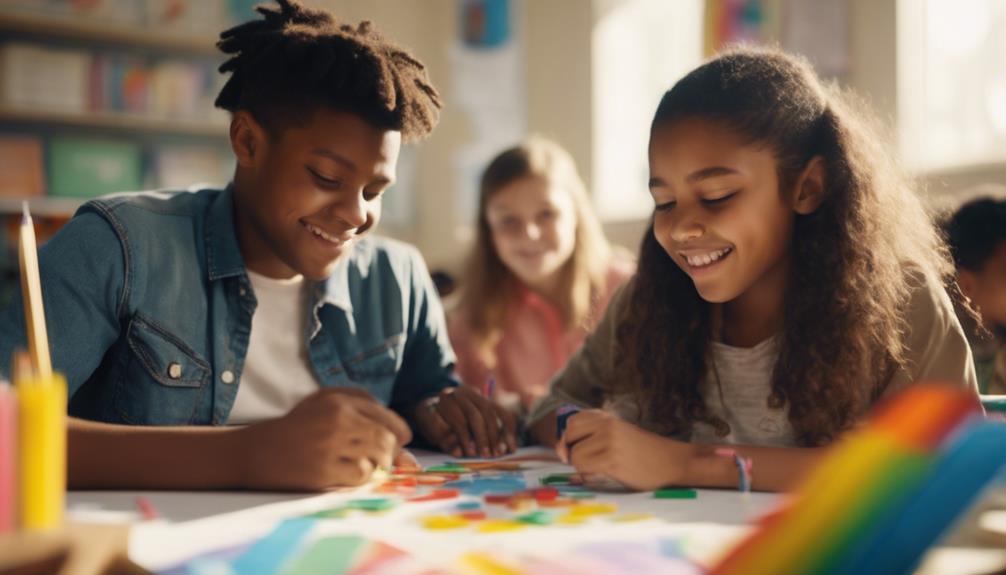
At the Collins Institute, essential skills development focuses on equipping students with practical knowledge that extends beyond traditional academics, ensuring they thrive in real-world scenarios.
Students engage in hands-on learning experiences that foster critical thinking, problem-solving, and emotional intelligence. The curriculum emphasizes financial literacy, effective communication, and social interaction, preparing them for diverse life paths.
With a testing-credit system, students can progress at their own pace, motivating them to strengthen weaker subjects. Daily log-ins allow them to choose topics, track mastery, and collaborate with peers.
Proctors support students in their emotional and social growth, creating a well-rounded educational environment. This approach helps students build essential skills that traditional schooling often overlooks, setting them up for future success.
Mentorship and Entrepreneurial Growth

Students benefit from a robust mentorship program that connects them with a vast network of industry professionals, enhancing their entrepreneurial skills from the outset. This approach empowers students to explore real-world business challenges while fostering creativity and innovation. With guidance from seasoned mentors, they gain invaluable insights and practical experience.
Key components of the mentorship program include:
- Pitch Opportunities: Students present their projects to industry professionals, refining their communication and persuasion skills.
- Core Classes: Focus on practical skills like sales, fundraising, and product development, equipping students with tools for success.
- Networking Events: Regular interactions with mentors and peers build connections that can lead to future collaborations and career advancements.
This extensive support system drives entrepreneurial growth among students.
Adapting to Future Trends

Recognizing the shifting landscape of the job market, the Collins Institute emphasizes adaptability and innovation as essential skills for future success. The founders understand that traditional career paths are disappearing, replaced by opportunities for entrepreneurship and self-directed careers.
Their curriculum focuses on practical skills like sales, fundraising, and product development, ensuring students can thrive in dynamic environments. By fostering a mindset geared toward continual reinvention, the Institute prepares students to navigate and capitalize on emerging trends.
Additionally, access to a network of high-profile mentors helps students pitch and refine their projects, reinforcing the importance of real-world experience. Ultimately, the Collins Institute is dedicated to equipping students with the tools necessary to adapt and excel in an ever-evolving job market.
How Did Taha Bouqdib Revolutionize the Coffee Industry Similar to the Education System?
Taha Bouqdib successfully transformed the coffee industry, just as he revolutionized the education system, by reviving a coffee legacy vision. His innovative approach and commitment to quality have reshaped the way we enjoy coffee, while also redefining the standards for education and learning.
How are the Couple Revolutionizing Education Similar to the Innovators in Oral Care?
The couple revolutionizing education and oral care innovators transforming the industry both share an innovative approach. They are changing the way we think about learning and oral health, and their groundbreaking ideas are reshaping their respective fields. Both are committed to making a positive impact on people’s lives.
Conclusion
As Malcolm and Simone Collins pave the way for educational reform, their vision resonates with a pressing reality: studies show that 70% of jobs created in the next decade will require skills that aren't emphasized in traditional schooling.
By championing personalized learning and fostering essential life skills, the Collins Institute for the Gifted not only addresses systemic failures but also equips students to thrive in an unpredictable job market, ultimately shaping a more inclusive and dynamic future for education.
